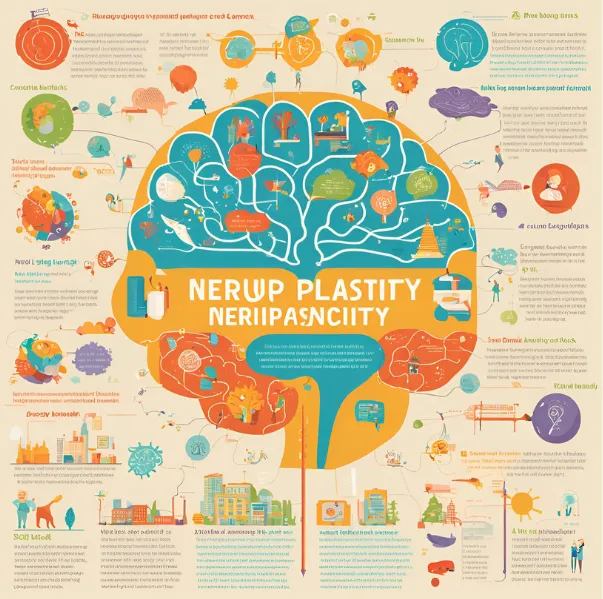
Blog > What is Guitar for Beginners?
The Best Age To Learn Guitar
The question of when to start learning guitar has intrigued parents, educators, and musicians alike. With early exposure to music being linked to cognitive benefits, fine motor skills development, and emotional intelligence, many wonder whether there is an optimal age to pick up the instrument. Research in neuroscience and child development suggests that childhood, particularly the early years, may be the best time to introduce a child to musical instruments like the guitar. This article will explore the advantages of learning guitar at a young age, focusing on neuroplasticity, motor skill development, and the psychological benefits of early musical education.

Neuroplasticity and Early Learning

Neuroplasticity, the brain's ability to reorganize itself by forming new neural connections, is at its peak during childhood. This heightened adaptability allows children to absorb new information and skills at an accelerated rate compared to adults. When a child learns to play the guitar, their brain undergoes structural and functional changes that strengthen neural pathways associated with auditory processing, coordination, and memory.A study conducted by Schlaug et al. (1995) found that musicians who started training before the age of seven had a significantly larger corpus callosum, the bundle of nerve fibers connecting the brain's two hemispheres. This suggests that early exposure to musical training enhances inter-hemispheric communication, leading to improved cognitive abilities. Furthermore, a 2014 study published in The Journal of Neuroscience demonstrated that children who started learning music before the age of seven exhibited enhanced fine motor skills and auditory processing compared to those who began later.By taking advantage of neuroplasticity, young guitar learners can develop a heightened sense of rhythm, pitch recognition, and hand coordination, all of which can contribute to both musical and non-musical cognitive benefits. Moreover, learning an instrument at an early age has been linked to improved academic performance, particularly in subjects such as mathematics and language acquisition.
Development of Fine Motor Skills and Coordination
Playing the guitar requires a high degree of dexterity and coordination. Children naturally develop fine motor skills as they engage in various physical activities, but musical training can accelerate and refine this process. Holding down strings, strumming, and shifting chords demand precision and control, strengthening the small muscles in the fingers and hands.One of the most notable advantages of starting guitar at a young age is the early refinement of hand-eye coordination. A study by Hyde et al. (2009) found that children who engaged in music training demonstrated significant improvements in motor skill development and enhanced brain structure changes associated with movement control. These advantages can extend beyond musical ability, aiding in tasks that require manual dexterity, such as writing, drawing, and even sports.Additionally, playing the guitar involves bimanual coordination—where each hand performs distinct yet synchronized tasks. The left hand (or fretting hand) presses down on strings to create notes and chords, while the right hand (or strumming hand) plucks or strums the strings rhythmically. Mastering this coordination at a young age can lead to improved multitasking abilities, reinforcing the child’s ability to manage complex motor skills efficiently.

Psychological and Emotional Benefits of Early Guitar Learning

Beyond cognitive and motor skill benefits, learning guitar at an early age can have profound psychological and emotional effects. Children who engage in music education tend to develop higher levels of self-discipline, patience, and perseverance. Learning an instrument requires consistent practice and gradual improvement, teaching children the value of long-term commitment and resilience in the face of challenges.A 2013 study published in Frontiers in Psychology found that children who participated in music training exhibited increased emotional intelligence, particularly in their ability to recognize and interpret emotions in themselves and others. This is likely due to the expressive nature of music, which allows young learners to channel their feelings through playing and composing. Guitar playing, in particular, provides an accessible outlet for self-expression, helping children build confidence and emotional stability.Moreover, early musical education has been linked to social benefits. Playing the guitar can encourage social interaction through group lessons, band participation, or school performances. Collaborative music-making fosters teamwork, communication skills, and empathy. A study by Kirschner & Tomasello (2010) highlighted that children who engaged in group music activities exhibited higher levels of cooperation and prosocial behavior, suggesting that early guitar lessons may contribute to overall social development.
In light of scientific research and developmental studies, the best age to start learning guitar is during early childhood, ideally before the age of seven. Neuroplasticity allows young learners to acquire musical skills rapidly, while the physical demands of guitar playing enhance fine motor skills and coordination. Additionally, the psychological and emotional benefits of early music education contribute to a child’s overall well-being, fostering discipline, resilience, and social engagement.While it is never too late to learn the guitar, beginning at a young age provides the greatest advantages. Parents and educators looking to introduce children to music should consider early guitar lessons as a means of enhancing cognitive development, motor skills, and emotional intelligence. Encouraging young learners to explore the world of music can lead to a lifelong appreciation for artistic expression and personal growth.
Contact Us
Open Hours
Social Media
Monday - Friday: 4:00 PM - 8:00 PM
Saturday: 2:00 PM - 6:00 PM
Sunday: Closed

Blog > What is Guitar for Beginners?
The Best Age To Learn Guitar

The question of when to start learning guitar has intrigued parents, educators, and musicians alike. With early exposure to music being linked to cognitive benefits, fine motor skills development, and emotional intelligence, many wonder whether there is an optimal age to pick up the instrument. Research in neuroscience and child development suggests that childhood, particularly the early years, may be the best time to introduce a child to musical instruments like the guitar. This article will explore the advantages of learning guitar at a young age, focusing on neuroplasticity, motor skill development, and the psychological benefits of early musical education.
Neuroplasticity and Early Learning

Neuroplasticity, the brain's ability to reorganize itself by forming new neural connections, is at its peak during childhood. This heightened adaptability allows children to absorb new information and skills at an accelerated rate compared to adults. When a child learns to play the guitar, their brain undergoes structural and functional changes that strengthen neural pathways associated with auditory processing, coordination, and memory. A study conducted by Schlaug et al. (1995) found that musicians who started training before the age of seven had a significantly larger corpus callosum, the bundle of nerve fibers connecting the brain's two hemispheres. This suggests that early exposure to musical training enhances inter-hemispheric communication, leading to improved cognitive abilities. Furthermore, a 2014 study published in The Journal of Neuroscience demonstrated that children who started learning music before the age of seven exhibited enhanced fine motor skills and auditory processing compared to those who began later. By taking advantage of neuroplasticity, young guitar learners can develop a heightened sense of rhythm, pitch recognition, and hand coordination, all of which can contribute to both musical and non-musical cognitive benefits. Moreover, learning an instrument at an early age has been linked to improved academic performance, particularly in subjects such as mathematics and language acquisition.
Development of Fine Motor Skills and Coordination

Playing the guitar requires a high degree of dexterity and coordination. Children naturally develop fine motor skills as they engage in various physical activities, but musical training can accelerate and refine this process. Holding down strings, strumming, and shifting chords demand precision and control, strengthening the small muscles in the fingers and hands. One of the most notable advantages of starting guitar at a young age is the early refinement of hand-eye coordination. A study by Hyde et al. (2009) found that children who engaged in music training demonstrated significant improvements in motor skill development and enhanced brain structure changes associated with movement control. These advantages can extend beyond musical ability, aiding in tasks that require manual dexterity, such as writing, drawing, and even sports.Additionally, playing the guitar involves bimanual coordination—where each hand performs distinct yet synchronized tasks. The fretting hand presses down on strings to create notes and chords, while the strumming hand plucks or strums the strings rhythmically. Mastering this coordination at a young age can lead to improved multitasking abilities, reinforcing the child’s ability to manage complex motor skills efficiently.
Psychological and Emotional Benefits of Early Guitar Learning

Beyond cognitive and motor skill benefits, learning guitar at an early age can have profound psychological and emotional effects. Children who engage in music education tend to develop higher levels of self-discipline, patience, and perseverance. Learning an instrument requires consistent practice and gradual improvement, teaching children the value of long-term commitment and resilience in the face of challenges. A 2013 study published in Frontiers in Psychology found that children who participated in music training exhibited increased emotional intelligence, particularly in their ability to recognize and interpret emotions in themselves and others. This is likely due to the expressive nature of music, which allows young learners to channel their feelings through playing and composing. Guitar playing, in particular, provides an accessible outlet for self-expression, helping children build confidence and emotional stability. Moreover, early musical education has been linked to social benefits. Playing the guitar can encourage social interaction through group lessons, band participation, or school performances. Collaborative music-making fosters teamwork, communication skills, and empathy. A study by Kirschner & Tomasello (2010) highlighted that children who engaged in group music activities exhibited higher levels of cooperation and prosocial behavior, suggesting that early guitar lessons may contribute to overall social development.
In light of scientific research and developmental studies, the best age to start learning guitar is during early childhood, ideally before the age of seven. Neuroplasticity allows young learners to acquire musical skills rapidly, while the physical demands of guitar playing enhance fine motor skills and coordination. Additionally, the psychological and emotional benefits of early music education contribute to a child’s overall well-being, fostering discipline, resilience, and social engagement. While it is never too late to learn the guitar, beginning at a young age provides the greatest advantages. Parents and educators looking to introduce children to music should consider early guitar lessons as a means of enhancing cognitive development, motor skills, and emotional intelligence. Encouraging young learners to explore the world of music can lead to a lifelong appreciation for artistic expression and personal growth.
Contact Us
07770 249646
45 Lichfield Street, Tipton West Midlands DY4 9NL
Service Hours
Monday - Friday: 4:00 PM - 8:00 PM
Saturday: 2:00 PM - 6:00 PM
Sunday: Closed
Social Media






